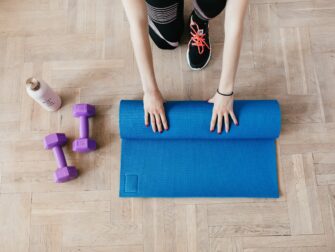Introduction
In today’s fast-paced world, maintaining wellness and fitness can feel like an uphill battle. However, by adopting the right strategies, you can empower yourself to achieve your fitness goals and enhance your overall well-being. In this article, we’ll explore various wellness strategies aimed at helping you succeed on your fitness journey.
Setting Clear Goals
The foundation of any successful fitness journey is setting clear, achievable goals. Without goals, it’s challenging to stay motivated and focused. When setting your fitness goals, make sure they are specific, measurable, achievable, relevant, and time-bound (SMART). For example, instead of saying, “I want to lose weight,” you might set a goal like, “I want to lose 10 pounds in three months by exercising three times a week and eating a balanced diet.”
Creating a Balanced Workout Routine
A balanced workout routine is essential for achieving overall fitness and preventing burnout or injury. Incorporate a mix of cardiovascular exercise, strength training, flexibility work, and rest days into your routine. Cardiovascular exercises like running, cycling, or swimming improve heart health and burn calories. Strength training builds muscle and increases metabolism. Flexibility exercises such as yoga or stretching improve range of motion and reduce the risk of injury. Remember to listen to your body and give yourself adequate rest between workouts.
Prioritizing Nutrition
Nutrition plays a crucial role in fitness and overall wellness. Focus on eating a balanced diet that includes a variety of fruits, vegetables, lean proteins, whole grains, and healthy fats. Avoid processed foods, sugary snacks, and excessive alcohol consumption. Pay attention to portion sizes and practice mindful eating to prevent overeating. Keeping a food diary can help you track your eating habits and identify areas for improvement.
Staying Hydrated
Proper hydration is often overlooked but is vital for overall health and fitness. Water is essential for regulating body temperature, lubricating joints, and transporting nutrients throughout the body. Aim to drink at least eight glasses of water a day, or more if you’re exercising heavily or in hot weather. Carry a reusable water bottle with you throughout the day to remind yourself to stay hydrated.
Getting Adequate Sleep
Sleep is a critical component of wellness and plays a significant role in recovery and muscle growth. Aim for 7-9 hours of quality sleep each night. Create a relaxing bedtime routine to signal to your body that it’s time to wind down. Avoid screens and stimulating activities before bed, and create a comfortable sleep environment free of distractions. If you’re having trouble sleeping, consider practicing relaxation techniques such as deep breathing or meditation.
Managing Stress
Stress can have a detrimental effect on both mental and physical health. Learning to manage stress effectively is essential for overall wellness. Find healthy ways to cope with stress, such as exercise, meditation, spending time in nature, or engaging in hobbies you enjoy. Practice mindfulness to stay present and focused, and don’t hesitate to seek support from friends, family, or a mental health professional if you’re feeling overwhelmed.
Read More: Vegan Fitness: Plant-Powered Performance
Tracking Progress
Tracking your progress is essential for staying motivated and on track towards your fitness goals. Keep a workout journal to record your workouts, including exercises, sets, reps, and any notes about how you felt during the workout. Take progress photos regularly to visually track changes in your body composition. Use fitness apps or wearable devices to monitor your activity levels, sleep quality, and nutrition. Celebrate your achievements along the way, no matter how small, to stay motivated and inspired.
Seeking Support
Don’t underestimate the power of social support in achieving your fitness goals. Surround yourself with like-minded individuals who support and encourage your efforts. Join fitness classes, sports teams, or online communities to connect with others who share your interests. Having a workout buddy or accountability partner can help keep you motivated and accountable. Don’t be afraid to ask for help when you need it, whether it’s from a personal trainer, nutritionist, or health coach.
Adapting and Evolving
Flexibility and adaptability are key to long-term success in fitness and wellness. Be willing to adjust your goals and strategies as needed based on your progress, preferences, and changing circumstances. If you hit a plateau or encounter setbacks, don’t get discouraged. Instead, use them as opportunities to learn and grow. Experiment with new workout routines, try different types of exercise classes, or explore alternative forms of physical activity. Keep an open mind and embrace the journey of self-discovery and self-improvement.
Conclusion
Empowering your fitness and wellness requires dedication, effort, and a commitment to self-care. By setting clear goals, creating a balanced workout routine, prioritizing nutrition, staying hydrated, getting adequate sleep, managing stress, tracking progress, seeking support, and adapting as needed, you can set yourself up for success on your fitness journey. Remember that it’s not just about reaching a destination but enjoying the journey and embracing a healthy, active lifestyle for life.



